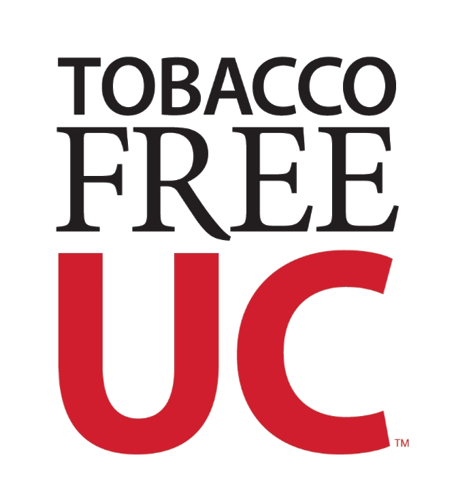Proven Strategies for Quitting
The Quitline program is built on proven strategies. We will walk you through the best ways to quit tobacco for good based on your unique background, experience and goals. Our clinically proven methods help more than 450 people quit tobacco every day. How do we do it?
Quit Medications
One of the reasons quitting tobacco is so difficult is because nicotine is highly addictive. When you quit tobacco, it is normal for your body to go through withdrawal symptoms that make you feel anxious, stressed, or sad. These symptoms are normal and temporary but they can still be uncomfortable.
There are many quit medications approved by the U.S. Food and Drug Administration (FDA) to help manage these symptoms. Not everyone chooses to use quit medications but research shows they can double or triple your chances of quitting for good.
Nicotine Replacement Therapy (NRT) works by replacing the nicotine you were getting from your tobacco products, such as cigarettes or vaping devices, with a pure form of medical nicotine that is much safer than tobacco products. Over time, you’ll begin to reduce the amount of nicotine you use. NRT is helpful because it lessens your cravings and withdrawal symptoms.
Here are some different types of NRT:
Nicotine PatchA nicotine patch is placed on your skin and releases nicotine into your bloodstream. Nicotine patches maintain a steady level of nicotine in your body without using tobacco.
Nicotine GumAs you chew nicotine gum and place it against your cheek, nicotine is released and absorbed through the lining of your mouth. Nicotine gum should be used on a schedule, such as a piece every 1 to 2 hours.
Nicotine LozengeThe nicotine lozenge is small and releases nicotine as it slowly dissolves against your cheek. Nicotine lozenges should be used on a schedule, such as a lozenge every 1 to 2 hours.
Nicotine Nasal Spray (prescription only)The nicotine nasal spray delivers nicotine into your bloodstream and helps reduce the craving for a cigarette. Nicotine nasal spray can irritate the lining of the nose and upper airways and cause sneezing. The sneezing lessens with use, but this medicine is not recommended for people with asthma or nasal or sinus problems.
Nicotine Inhaler (prescription only)The nicotine inhaler is a small device that you hold in your hand and inhale. As you inhale from it, nicotine is released into your blood stream. This type of NRT may be helpful for people who want to keep their hands busy.
Some people prefer to use quit medication that does not contain nicotine. A few options available by prescription include:
Varenicline (Chantix®)Varenicline is a prescription medicine used to help quit tobacco. It works by lessening withdrawal symptoms and blocks the enjoyable effects of smoking cigarettes. It is a tablet taken by mouth once or twice a day.
Bupropion SR (Zyban®, Wellbutrin SR®)Bupropion SR is a prescription medicine used to help quit tobacco. It works by lessening your desire to smoke as well as the symptoms of depression or sadness that can come with quitting smoking. It is a tablet taken by mouth once or twice a day.
Quitline Coaching Support
Research shows people who use Quitline coaching services are more likely to be successful than people who choose online only options or try to quit on their own. By choosing a program that includes coaching, you’re one step closer to success.
Throughout your time with Quitline, your quit coach will contact you 5 times to check in. These calls can be used to discuss your quit plan, possible triggers, milestones, and slip ups. While every plan is customized, most calls last about 15-20 minutes and are scheduled every 1 to 2 weeks. You will also receive technology-based coaching support including email, text, and chat.
Our Quitline coaches are among the most experienced in the country. Every coach has a college degree or equivalent clinical experience and has completed thorough Quitline training. They are supportive, caring, and nonjudgmental—their biggest goal is to help you succeed in quitting!
Online Support
Once you enroll in the Quitline, you gain access to a supportive online community. This community is made up of people who are also trying to quit tobacco, have already quit successfully, or have a loved one who uses tobacco. The Quitline offers online forums and a comprehensive library of information to provide you 24/7 support.
We provide the right mix of support.Coaching and quit medications combined give you the best chance of quitting. We offer those resources, plus direction in developing a quit plan that will help you meet your toughest challenges along the way. The Quitline also helps you draw on support from family, friends and an online community that is available 24/7.
We have caring quit coaches.Our quit coaches are among the most skilled and knowledgeable in the country. They are caring, nonjudgmental, and committed to helping you!
We know how to support all people.No matter your personal story, the Quitline can help. We work with women who are pregnant, teens, and people with mental health concerns. We assist individuals from all walks of life including LGBTQ people, African Americans, Asian Americans, Latinos, and Native Americans.
We’re operated by the nation’s leading respiratory hospital.National Jewish Health is the leading respiratory hospital in the United States. Our organization is known for its expertise in preventing and treating life-threatening and chronic diseases.







